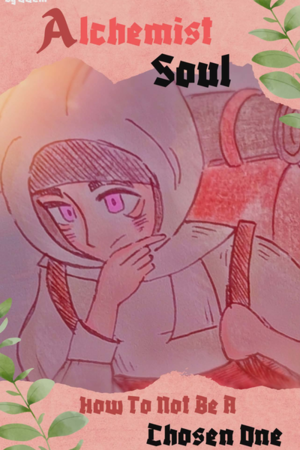Chapter 47:
Ours
Shadows of another life: The golden dawn
“You heard the orders,” Professor Anselm barked one last time as the teachers filed from the Headmaster’s chamber, robes swirling like stormclouds. “Double the outer wards, check the sigils for seepage, and send men to the old stacks. If anything matches, bring it to me—no excuses.”
Mistressed Veyra’s jaw was a hard line. “And I want patrol rotations staggered. No predictable patterns. If the figure comes again, he shouldn’t find a sleepy circle to stroll through.”
Selwin lingered, his slim fingers worrying at the edge of a parchment. “We should also question access—who could approach the gates undetected? There are routes within the Academy’s jurisdiction I’ve never liked. Old service passages, forgotten tunnels. They could hide a dozen watchers.”
A murmur rippled through the faculty; worry braided with anger. Someone had the gall to script words across the sky and name a child. None of them liked the idea of being humiliated by myth in the open air.
Rhoren watched them for a long moment, his face a mask. Then he turned and found Lucien waiting with the rest of the group in the outer corridor—eyes hollow, Fenris a low, solid weight across his lap. The Headmaster’s expression softened—just a fraction—before he reclaimed the sternness of office.
“You will have escort tonight,” Rhoren told Darius and the others. “And a watch rotated through the wing. Anselm will place a secondary lattice around Lucien’s quarters—two overlapping wards. No one enters without clearance.”
Lucien felt the words like hands closing and opening—protection, but also binding. He nodded because the muscles in his face obeyed, even if his heart had lodged under his ribs.
“Good.” Rhoren’s voice brooked no further discussion. “Dismissed.”
The teachers dispersed like wind scattering leaves. Their arguments trailed behind them: who to blame, who should have seen this, whether an outside coven had learned to write into the world. The corridor returned to a brittle hush the moment they were gone.
Arian exhaled. “They think it’s an external threat. That’s the simplest way to feel safe.” His tone was void of humor tonight.
Toren made a distressed sound. “External? Bah. I prefer my enemies with moustaches and monologues. These… poetic types are very inconvenient.”
Darius ignored him, already thinking, already measuring. He lowered his voice. “I will speak with Anselm about the wards. Caelith, can you… look through the library’s ledger? See what Selwin might unearth. Old runes, inscriptions—we need references.”
Caelith’s pen tapped the side of his journal, an impatient metronome. “I will. The library’s catalog is a mess, but the old entries—yes. I’ll find anything with the same curl.” He hesitated, eyes locking on Lucien. “There are motifs, sometimes—they are signatures. Whoever did that prefers show.”
Lucien swallowed. “Show,” he repeated, the word like a bruise.
“You won’t be alone,” Darius said softly, meeting his gaze. “Even when we sleep, we will take turns.”
They paired and dispersed—the practical choreography of people trying to believe control meant safety. Lucien drew the curtains in his room with trembling hands, arranging Fenris so the wolf’s flank blocked the doorway. He could feel the lattice forming in the stones as Anselm worked, sensitive threads tugging at the back of his mind like fingers testing the edges of a wound.
Night smeared across the sky, and despite the Headmaster’s orders, Lucien could not sleep. The word from the sky floated behind his eyelids—OURS—and in the quiet of his room it felt like an answer spoken just for him. He rolled over, hugging Fenris, trying to anchor himself to something solid.
“Why me?” he whispered into the dark.
Fenris exhaled a wolf’s breath that was somehow gentler than any human comfort. The wolf’s ears moved, listening. The bond thrummed—protective, insistent. Lucien tried to steady the tremor in his fingers.
He wasn’t imagining the whisper. It arrived again, this time softer, threading like cold through his thoughts.
Come.
Lucien’s skin crawled. He bolted upright, heart an animal. “No,” he said aloud, as if the sound could push the voice back into the air.
Outside, the wing was still. Then a faint scrape—metal on stone—carried from the corridor. Fenris’s hackles rose. Lucien’s breath became a shallow ragged thing.
He stood, every instinct screaming to stay put, to barricade the door, to call for Darius. But the whisper had a tug, a low hunger threaded through velvet words. It sounded like a promise and a threat. The kind of thing that could make rational brains turn into prey. Lucien pressed his palms to his ears, but the voice slid into the bones.
Ours.
He staggered to the door anyway. A part of him demanded to know — to incriminate himself by facing the thing that wanted him.
When he cracked the door a fraction, a sliver of the corridor lay revealed, lit faintly by the ward-lattice that hummed along the floor. It pulsed in pale lines, a spiderweb grown out of Anselm’s magic. The wards flared briefly, as if sensing disturbance, then settled.
Nothing there. Only the usual cast of shadows.
Lucien shut the door and pressed his back against the wood, breaths shuddering. That was enough — proof that the voice could lie, that sound could be conjured to unnerve. He slid down and sat on the floor, knees drawn to his chest. Fenris rested his head on Lucien’s lap and sighed.
The whisper folded into the quiet of his skull like a parasite. It suggested things—a route he had never walked, a name he had never heard. Specks of images: ivy-laced stones, a room beneath the library, a portal where the mortar hummed in an old tongue. Lucien could have sworn he’d never been there.
He wasn’t sure if the voice showed him truth or design.
At the far end of the corridor feet shuffled—someone approaching. Lucien’s muscles tensed. He didn’t want help. He wanted to be normal. He wanted the mind to stop drafting endings where he was the sacrifice.
Darius appeared before Lucien could decide what to do, his antlers dim against his brow, a quiet silhouette. “You called?” he asked.
Lucien wanted to lie. He wanted to say ‘no, sleep’ and tuck himself away. Instead he fumbled the words. “I thought I heard something.”
Darius studied him a heartbeat, then nodded like a man accepting what must be true. “Stay in. I’ll take the first watch.” He set his stag outside the door at a careful angle; the creature’s glow tickled the lattice. “You will call if anything changes.”
Lucien nodded. Darius’s presence was a tether. It helped. But when Darius left and the door closed, the corridor swallowed him like a mouth.
Hours later the lattice hummed bright and angry. A sound like a bell—metallic, wrong—exploded through the stone. The wards flared. Lights erupted in windows. Somewhere above, someone shouted, a panic born from surprise.
Lucien scrambled up, heart ricocheting. He pushed open the door and ran. The corridor was a river of people—students and faculty converging, eyes wide, breath smoking in the night air. Torches bobbed. Someone cried a name.
At the far courtyard the outer lattice—the one Anselm had set across the gates—shivered and then snapped like a thread. Flames licked at the edges where the wards met the iron; for a heartbeat the runes flared orange and illegible, then obediently died back.
There, between the iron and the mist, a shape moved. Not a figure this time but a thing: a pale hand like a question, a sliver of cloak, a face that could not be seen. It hovered at the boundary of the gate—testing.
Selwin muttered an incantation, and a spear of pale light flew from his staff, striking the mist. The hand recoiled, and for a moment everyone exhaled.
Then the words—less flamboyant this time, like a line drawn with a knife across the mist—seared into the air, close enough for the courtyard to read without the sky stage.
TAKE HIM.
The command felt immediate, pressing like a palm on Lucien’s chest. He could sense the way the syllables reached into him, probing.
Rhoren’s shout cleaved through the noise. “Hold! Form ranks!”
Teachers shoved students back. Darius moved like a hinge—fast, purposeful—placing himself between the gate and Lucien as if his body could map the distance words would have to travel.
The figure at the gate bowed his head—an odd, formal motion—and then, impossibly quick, the mist converged and it vanished.
The courtyard shuddered with fear and fury. Rhoren’s face was stone. “This is not a random theatre,” he said. “They know what they want and how to take it.”
Lucien felt everyone’s eyes. He felt their fear like fingers. A voice inside, not the one from the mist but his own, whispered that the next command could be his last.
Darius’s hand found his shoulder and squeezed. “We will not let them,” he said, and the words were as much for himself as for Lucien.
But as Toren muttered loudly about forming a very unwilling militia, and as Anselm barked orders to patch the wards, the whisper curled around Lucien’s ribs like smoke and the single word from the gate had not left him.
Come.
And beneath it, softer, an echo like the scrape of claws at a window:
Ours.
•••




Please sign in to leave a comment.